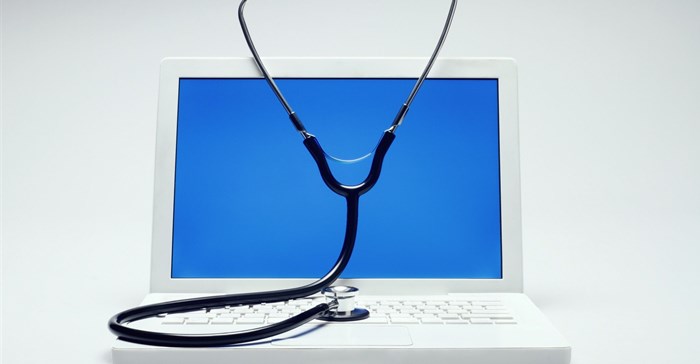Ask Dr Google. The pros and cons of online diagnosis

Unfortunately, self-diagnosing on the internet can sometimes cause more harm than good. Pew Research reports that 80% of internet users in the US search for health-related topics online.
While the stats aren’t similarly available for SA, in 2018 found that close to 60% of South Africans now have access to the internet. It seems we could be using this to self-diagnose. Certainly, South African doctors agree that more and more patients are Google-searching their symptoms before consulting a medical professional, according to Dr Marion Morkel, chief medical officer at Sanlam.
Access to medical information 24/7
Other than for ease of access, Morkel says people consult the internet for a second opinion, because they’re curious about health-related issues, or want clarity on a doctor’s advice. “It’s free, fast and available 24/7.”
She says that there is conflicting data on the ratio of accurate versus inaccurate medical information online. “A 2014 survey looked at 10 medical Wikipedia posts on popular medical topics, and cross-referenced them with evidence-based and peer-reviewed information. It found that nine out of 10 of these Wikipedia posts contained inaccurate medical information.On the other hand, also suggests that medical professionals confirm 41% of internet self-diagnosis.”
The doctor-patient icebreaker
Dr Sindi van Zyl, a medical doctor with a strong Twitter following, agrees that fighting the use of the internet in accessing medical information is a futile effort, “Instead, more medical professionals should embrace it. I find that patients announcing that they have looked up their symptoms online is a great ice-breaker – especially for those first few sessions where they might be a little nervous.
It’s also a great leveller of the patient-doctor dynamic – instead of them relinquishing their power completely, we become collaborative partners in addressing their health issues.”
Telemedicine
Van Zyl shares medical information on Twitter in line with the HPCSA’s (Health Professions Council of South Africa) telemedicine guidelines and says that this provides an additional platform to make a real difference. “Due to the information I have shared on Twitter on the topic of prevention-of-mother-to-child transmission of HIV (PMTCT), for example, there is a young child in Nigeria who was born HIV negative, to a mother living with HIV.”
According to HPCSA regulations, medical professionals in South Africa are not allowed to provide diagnosis or prescribe any schedule 4 medication over the internet. Though Morkel says that doctors can often effectively conduct virtual follow-up consultations.
“Depending on the specific programme and aims, chatbots have become so sophisticated that they can function as virtual assistants. They can help simplify medical information and act as interpreters where there are language barriers,” she says.
The rise of cyberchondria
Morkel says there is no doubt that it has increased the incidence of the recently coined variation called cyberchondria. This can be tied to over-diagnosis, increase in psychological disorders (such as anxiety), incorrect diagnosis (as those who frequently look up medical symptoms online can often magnify the severity of their symptoms once presenting to the doctor), and doctor fatigue (doctors can also become hardened and convinced that clients quoting online references are cyberchondriac and have exaggerated symptoms).
Van Zyl argues that cyberchondria is not completely negative. Many people won’t consult a doctor or nurse until the symptoms are really bad. The internet is helping people be more vigilant. We can address hypochondria, but there’s little we can do for patients who present too late.”
The key is to ensure:
- That the medical information comes from a reputable site
- That the information is not outdated or irrelevant geographically
- That a medical professional is consulted as a result– whether a pharmacist for minor symptoms, or a nurse or doctor for persisting and serious symptoms
Morkel warns that people prone to cyberchondria should stop the online searches. “It is best to limit your exposure to stress-inducing medical information online. Rather follow your instinct and common sense. If your symptoms worsen seek professional medical assistance as soon as possible.”